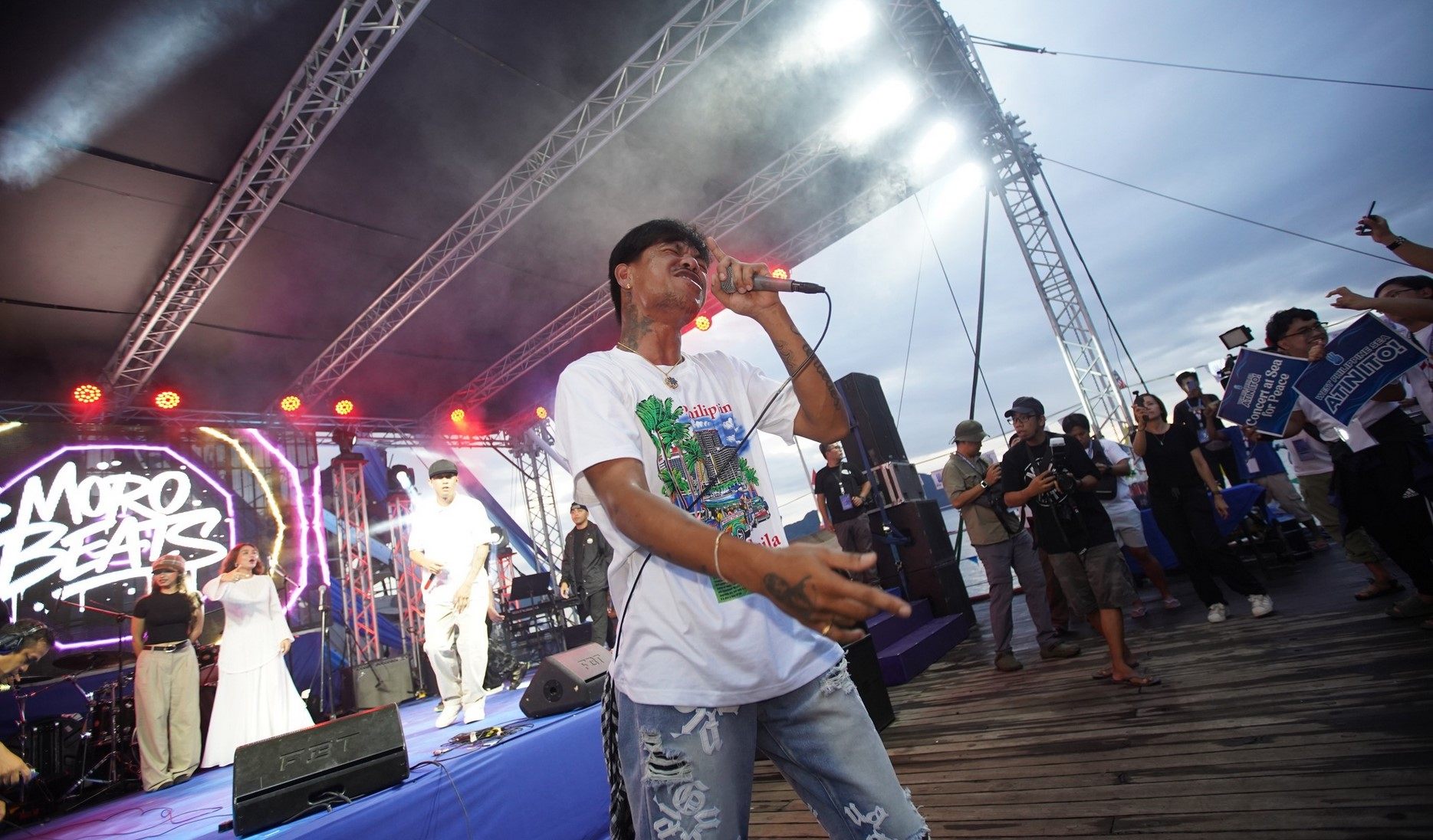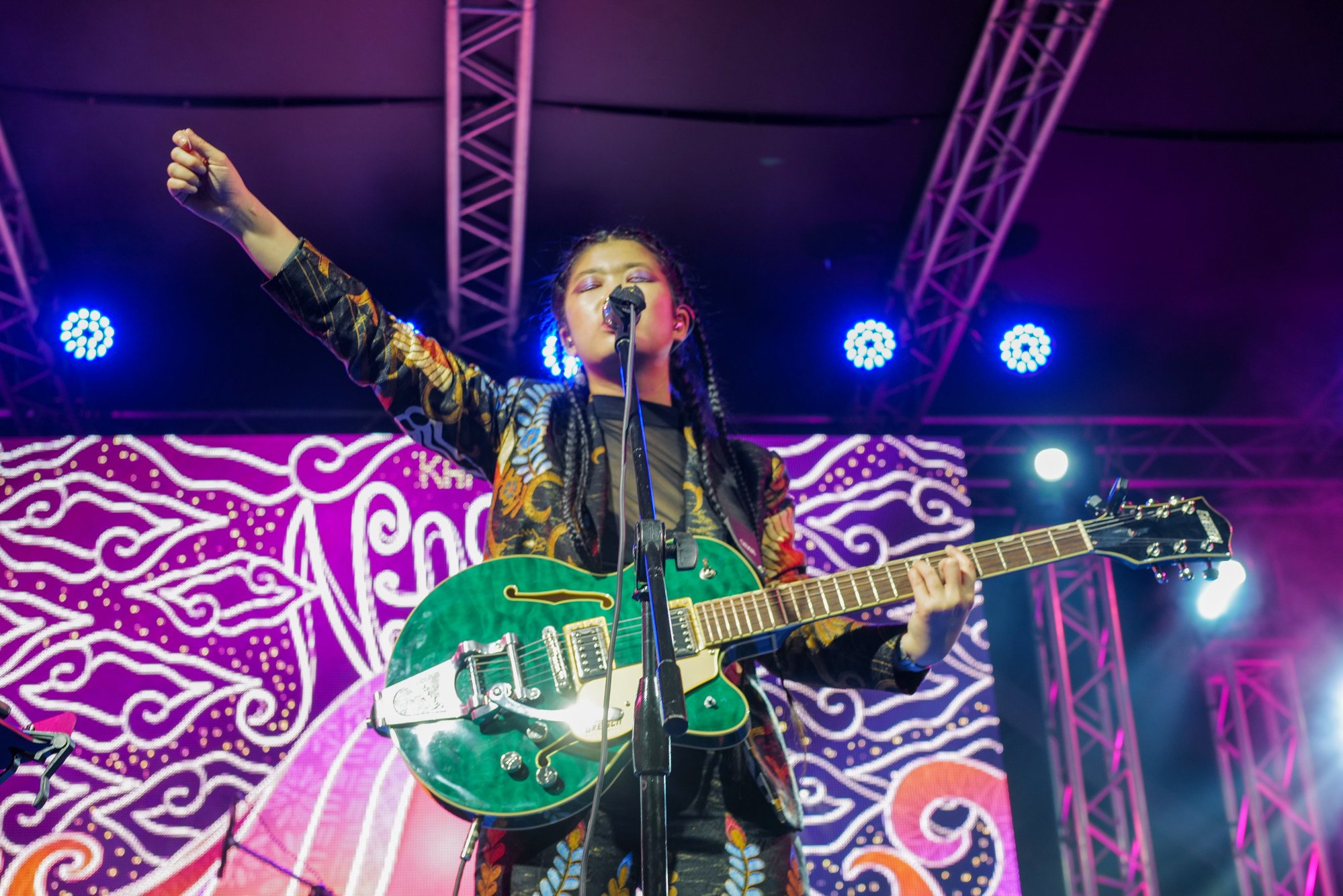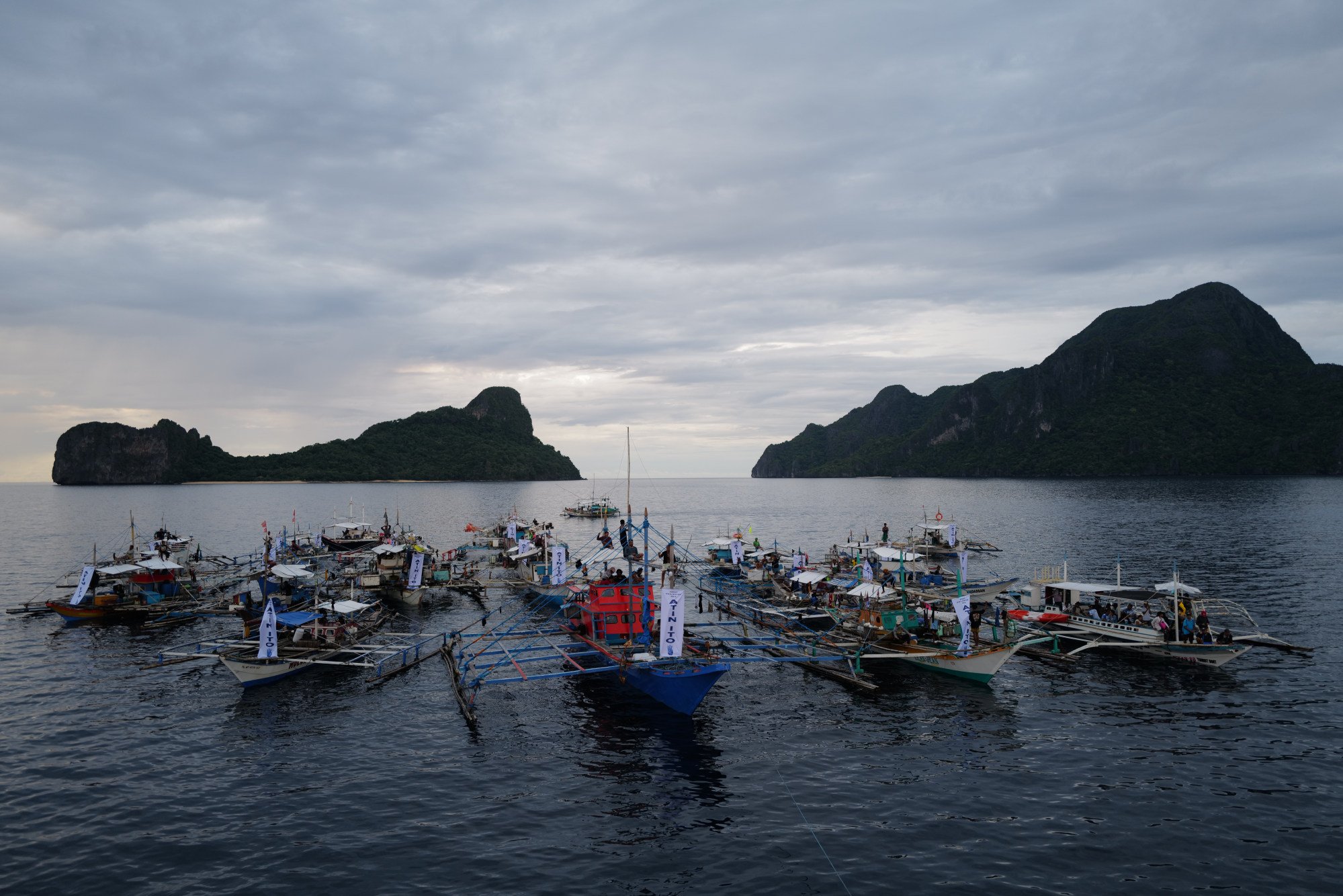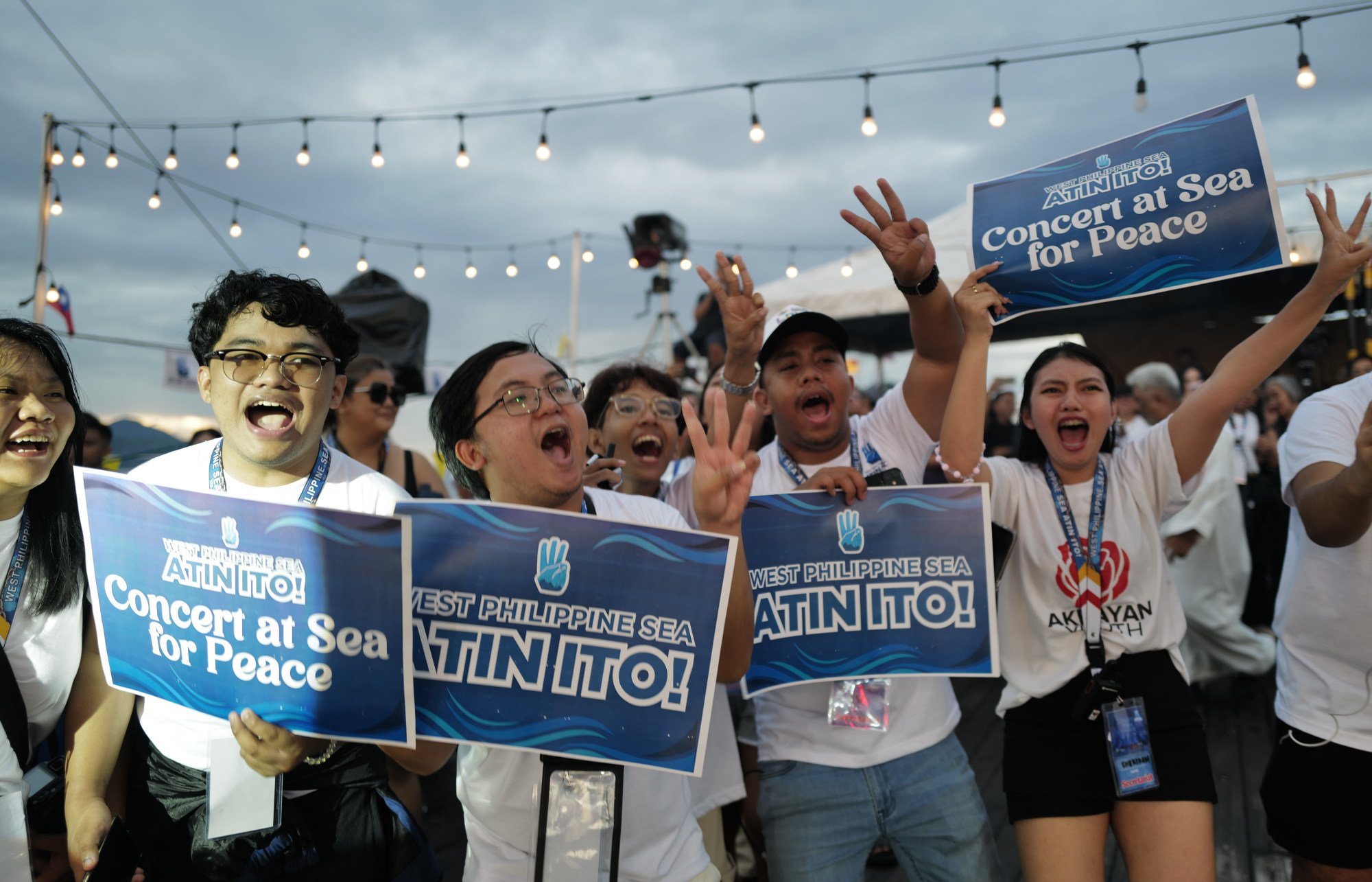Filipino activists stage ‘sea concert’ to resist Chinese claims in disputed waters
The symbolic concert near Thitu Island challenges China’s claims, and aims to galvanise support and highlight the Philippines’ rights in disputed waters

Combining protest with performance, Filipino activists staged a “sea concert” near the disputed Thitu Island in the South China Sea this week – a symbolic act of resistance that analysts say may not advance legal claims but could help galvanise regional solidarity and draw global attention.
The event, organised by the Atin Ito (This Is Ours) coalition, took place aboard the civilian vessel M/V Kapitan Felix Oca, which set sail from Palawan in the early hours of Tuesday carrying volunteers and artists from across Southeast Asia.
Hours into the journey, the ship and its two Philippine coastguard escorts were shadowed by Chinese coastguard vessels, which issued a radio challenge asserting Beijing’s sovereignty over the area. A voice from one of the Chinese ships cited “China’s domestic law and international law” – including the UN Convention on the Law of the Sea (UNCLOS) – and claimed a 2016 arbitral ruling was “illegal” and China “neither accepts nor recognises” it.
The Philippine coastguard stated the vessels were operating lawfully within its exclusive economic zone, referencing the country’s Maritime Zones Act, UNCLOS, and a 2016 Hague tribunal decision that invalidated China’s sweeping claims in the South China Sea. A female crew member was heard telling the Chinese vessels they had “no legal authority to patrol” the area and should “depart immediately.”
While no incident ensued, the ship’s captain, Jorge dela Cruz said the shadowing was “alarming,” considering the vessel was just 40 nautical miles from the Philippine mainland.
“They should not be here. This is ours,” he told reporters, recalling how a previous Atin Ito mission in December 2023 was aborted following Chinese harassment near the Second Thomas Shoal.

Activists and fishers from Malaysia joined the voyage in solidarity. Azril Omar, a Malaysian fisherfolk leader and member of the World Forum for Fisher Peoples, said the right to fish in national waters should not be infringed upon.
“Fishers’ right to fish in their waters shouldn’t be disturbed by any government or by any people. That’s why we are here,” Omar told reporters.
His colleague, veteran fisherman Jamaluddin Mohamad, echoed the sentiment.
“Someone showed me a map of the West Philippine Sea, and I couldn’t help but wonder: why is China, which is so far away, entering Philippine waters so close to and near the Philippines, Vietnam, and Malaysia?,” he said, referring to Manila’s term for waters in the South China Sea within its exclusive economic zone.
“They shouldn’t be here. It’s against international law.”

The activists reached the vicinity of Thitu Island – known in the Philippines as Pag-asa and claimed by China as Zhongye Dao – around 1.15pm on Tuesday, where they were greeted by Filipino fishing boats while Chinese coastguard and suspected militia vessels hovered nearby.
Undeterred by poor weather, the activists launched what they called the first-ever sea concert in the West Philippine Sea, just a couple of nautical miles from Thitu. Performers included Kai Mata, an Indonesian singer-songwriter known for her LGBTQ activism; Viona, a Malaysian singer and conceptual artist; independent South Korean girl group I:mond; global all-Filipino pop group Horizon; and Morobeats, a Filipino hip-hop band.
“Mission accomplished!” said Rafaela “Paeng” David, Atin Ito co-convenor. “Despite being shadowed by Chinese marine vessels, we stood our ground. Our artists sang not just to entertain, but to resist, to unite, and to inspire.”
“This concert is more than a musical event. It is a reminder that art, music, and culture are potent tools of resistance. Through music, we forged solidarity across nations and declared to the world that our seas must be zones of peace, not arenas of conflict,” David added.
The voyage also served humanitarian purposes. Volunteers distributed fuel subsidies to local fishers, and supplies for Filipino communities. Since 2023, the Atin Ito coalition has carried out missions to bolster the Philippine presence in disputed waters.

Concert with consequences
Chris Gardiner, CEO of the Institute for Regional Security, said the actions by Filipino civil society were understandable given China’s use of maritime militia to assert its claims, but warned of strategic risks.
“They risk counter-use of fishers by China at a far larger scale to populate disputed waters, islands, and formations. More significantly, they risk a clash with China’s coastguard,” Gardiner told This Week in Asia.
He said any such activities should ideally be coordinated by Manila’s National Security Council and “in clear communication with China” to avoid miscalculation.
China claims nearly the entire South China Sea, including areas within the exclusive economic zones of Brunei, Malaysia, the Philippines, and Vietnam. Although Indonesia does not consider itself a party to the dispute, Beijing also asserts historical rights to parts of the sea that overlap with Indonesia’s exclusive economic zone.
Greg Poling, director of the Southeast Asia programme at the Centre for Strategic and International Studies think tank in Washington, told This Week in Asia that it is good to see civil society from the Southeast Asian claimants cooperating but it does not bolster Manila’s legal claim in the West Philippine Sea.
“Perhaps it will convince the governments, especially in Indonesia and Malaysia, to do more to support their fellow claimants,” Poling said.
Another expert, Edmund Tayao, a professor at the San Beda Graduate School of Law in Manila, welcomed the involvement of foreign activists, emphasising the importance of cooperation in maintaining the area for the benefit of everyone.
“It shows in a simple but categorical way the significance of the disputed areas to the many countries and at the same time emphasises a united effort to repudiate and effort to take unicameral control of the common areas,” Tayao told This Week in Asia.
Tayao also stated that it highlights Manila as a cooperative partner actively seeking collective resolution to disputes in the South China Sea.

“In no small way it demonstrates not only to China but to the readiness of Southeast Asia and even to the world that cooperation and not domination is the way,” Tayao added.
Kiko Aquino Dee, nephew of former president Benigno Aquino and Executive Director of the Ninoy and Cory Aquino Foundation who joined the mission, however, defended the West Philippine Sea as more than a geopolitical flashpoint, but a vital source of life, livelihood, and liberty for many Filipinos.
“By mobilising people’s power at sea, we are continuing the legacy of active citizenship. We are sending a message to the world: the Filipino people will always stand up, peacefully but resolutely, for what is rightfully ours,” Dee said.